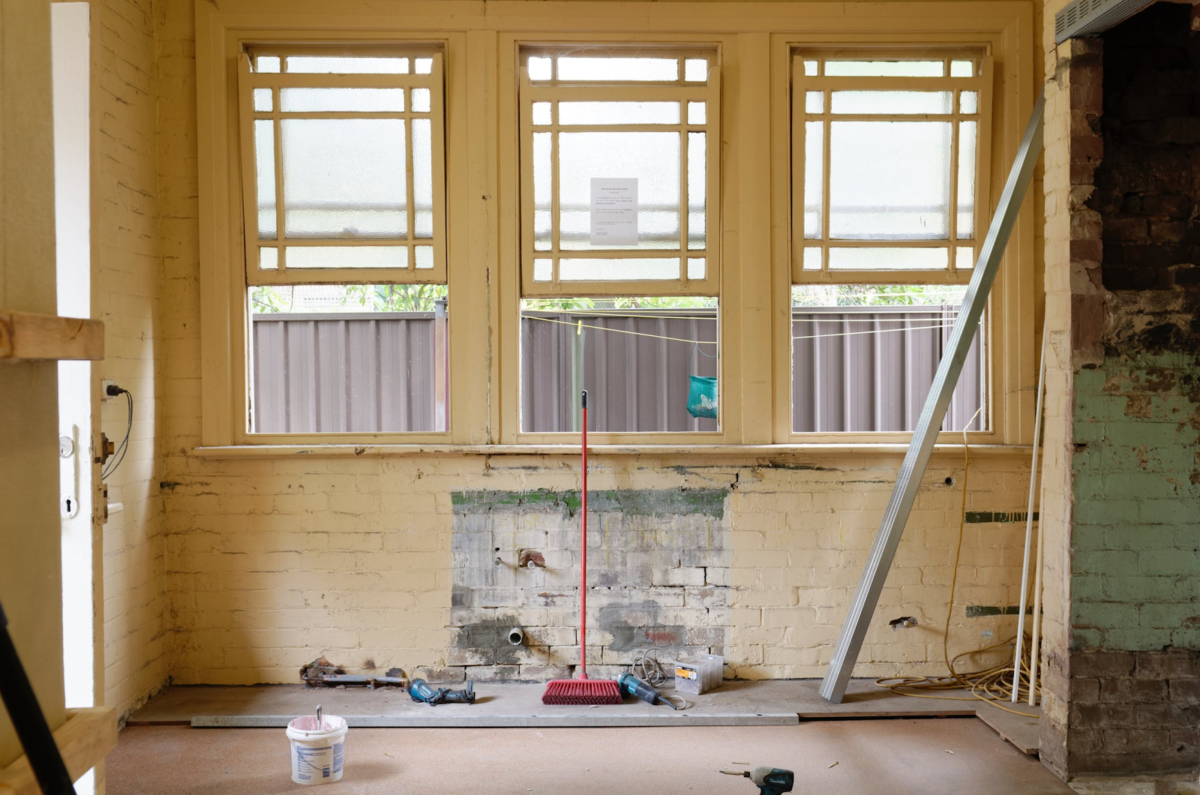Remodeling your home can seem like a daunting task: from budgeting to contracting, there are so many different factors that go into executing a successful remodel. Obviously before you can start any remodel, the first thing you need to do is determine what can be done with the resources that you have available. Despite the fact that planning and budgeting for a remodel can be a little bit intimidating, it can be one of the most fulfilling experiences as a homeowner and has the potential to elevate your home to create a more warm and welcoming environment. If your sticking to a close budget, consider taking some of the simpler tasks of the remodel into your own hands to save some cash. Whatever your budget or the size of your remodel, we here to make the entire process much less intimidating and more straightforward. Keep reading to for a complete guide to preparing for your remodel, from breaking down the steps of budgeting process to the precautions you should take to ensure that you start off on the right foot!
1. Determine the Priorities of your Remodel
The best way to begin budgeting for your remodel is to figure out exactly what the most pertinent needs of your home are. It’s not often that people remodel their entire homes at once, simply because the cost is merely out of their budget. For instance, a kitchen or bathroom remodel is likely to cost much more than an office or bedroom remodel because of the appliances and plumbing involved. If you have been wanting to make changes to a certain part of your house, make that the priority. Likewise, f there is an area where things need to be updated simply because they don’t function as well as they used to, then that should be put before any other projects.
2. Perform a Cost-Benefit Analysis on the Projects You Have in Mind
Once you determine what your remodeling priorities are, the next step is to evaluate which project will give you the best return on your investment. This is especially if you are looking to sell your home or increase the value of it as you’ll need to decide which projects will figure better in the list price. If the main goal of your renovation is to boost the value of your property, you should focus most of your budget on upgrading your appliances and updating details such as countertops, cabinetry and tiling. External remodels can also help boost your ROI since curb appeal creates a strong first impression on potential buyers who are admiring from the street. Do your research and find out what people buying homes in your area are looking for in a house and how you can remodel to cater to those preferences. If selling is your end goal, your updates should aim to please the needs of a variety of buyers, not necessarily what works best for you and your family.

3. Decide on a Budget Range
Whether you are taking on a home remodel on your own, or with a loved one, it is important to sit down and come up with a range that you are comfortable spending. Creating a budget range is a necessary process as it will help you understand what you can afford and reduce the risk of overspending. While we’re on the subject, it is also important to account for any unexpected changes or added expenses that come up during the remodel – there are bound to be some. Budgeting will also help you conceptualize areas where you can save money. $5,000 to paint all the walls in your home? We’ll pass.
4. Talk to Others Who Have Done a Home Remodel
You can gather a lot of insight from friends and family who have had their homes remodeled, especially if they had a similar blueprint. This can be helpful in many ways, to get a better idea of the cost, timeline from start to finish, and advice on what changes to make or which appliances are the better choice. If you ask anyone who’s remodeled their home, they almost always have different topics they wish they would’ve known more about. By reaching out to those around you, you’ll go into the remodel process more informed. Not to mention, having someone to ask questions all along the way will ease any anxieties, especially if things aren’t quite going according to plan.

While it can be a little scary embarking on the journey of home renovation, all the effort that goes into it is worthwhile in the long run. So, whether it’s just a small project or an extensive home renovation, hopefully these tips gave you a better idea of how to go about budgeting for a potential remodel and ways to make the process go much smoother.

